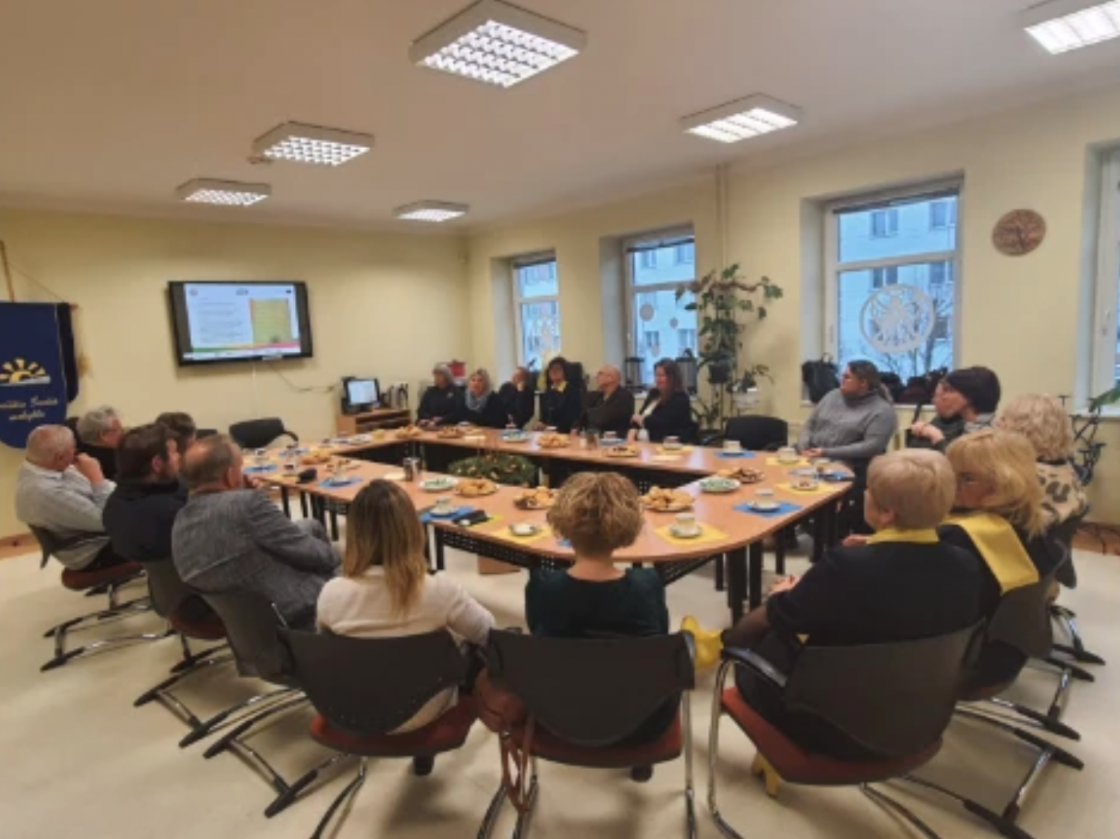ECO-IN project training in Lithuania „Inclusive education in Lithuania: problems, challenges and opportunities“

The Lithuanian Education and Science Trade Union (LESTU), the country’s largest education and science trade union, together with partners from Italy, Spain, Romania and Belgium, is carrying out the ECO-IN project, which aims to develop an innovative training model to monitor and evaluate the level of inclusiveness in mainstream education schools.
The aim of the project is to improve the policy and practice of inclusive education in mainstream schools by actively involving teachers, school leaders, education support specialists, parents and education policy makers in the process – by providing them with specific training and support to enable them to properly implement qualitative and quantitative measures to ensure inclusive education.
This project is particularly important in view of the changes to the Law on Education in 2024, which will mean that every school in Lithuania will be obliged to accept children with disabilities and special educational needs. The education community often uses the term inclusive education to refer to these changes. Although the idea promoted by politicians sounds great, in practice we can see that in Lithuania we have not really exploited the full potential of inclusive education, there is a lack of involvement of different groups of society, a clear strategy for action, support for professionals, sufficient funding and a change in attitude.
LESTU, as one of the ECO-IN project partners, in order to encourage the active participation of teachers, school leaders, education support specialists, education policy makers and parents in the process of creating an inclusive school, has invited participants from various regions of Lithuania to come to the project’s training course in Joniskis on 1 December.
We are glad that the ECO-IN training took place in Joniskis „Saules“ Elementary School, which is known throughout Lithuania as a successful example of inclusive education. This school is unique in that, in addition to general education, it also has a well-developed Special Education Department and in 2006 a Day Employment Centre was established. The participants of the training could see for themselves why in 2014 the Special Education Department of Joniskis „Saules” Elementary School received the highest rating for its educational activities and why it is now able to share its good practices with other Lithuanian educational institutions and their colleagues.
Participants were given a broader overview of the ECO-IN project and the results of its survey, which aims to find out what the true level of inclusion is in the education system of each project country.
The most emotional event for the participants was the one organised by the Special Education Department of the Joniskis „Saules” Elementary School, dedicated to the upcoming International Day of People with Disabilities. During this event, everyone could see how important it is for pupils with special educational needs to have every opportunity to develop, socialise, be seen, heard, understood, supported and valued. These children are an important part of our society, they just need more help, but, as the participants summarised, not the formal kind, or the kind that is nicely described in various pieces of legislation, but the kind that is practical, with the right number of professionals, the right infrastructure, and the right amount of funding for a well-rounded education for all of them..
Participants discussed the problems and challenges faced by Lithuanian educational institutions, their professionals and the children attending them when it comes to inclusive education. To summarise this discussion, there are 4 areas that need to be addressed in order to change the situation. Firstly, the development of inclusive education policies and the realisation by authorities and politicians that inclusive education is not a nice name but about real people and their needs. Secondly, funds for inclusive education, because quality in education is expensive. Thirdly, human resources, because there is already a huge shortage of educational support professionals and nothing is really being done to change this situation. Fourthly, the public perception that inclusive education is not to be feared, but to be prepared for. Something that we have not encountered frightens us, but that fear must not prevent children with special needs from feeling and being full members of our society.
This ECO-IN project training has once again demonstrated the importance of working together to achieve the goal. It is important to talk about the problems and find solutions together, and this process must involve everyone – education policy makers, teachers, school leaders, education support professionals and parents.
LESTU information
